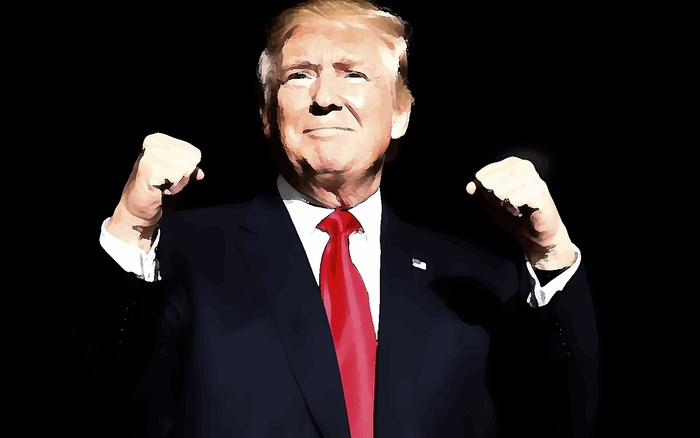
When he chastised NATO allies over their failure to spend adequately on our common defense, his critics said he was endangering the Atlantic alliance. Instead, his tough stance persuaded allies to spend billions more on defense, strengthening NATO instead.
Now, Trump is doing the same on trade. At the Group of Seven summit in Quebec, Trump was roundly criticized for publicly berating allies over their trade practices and provoking a needless trade war. Well, once again, it appears Trump is being proved right.
On Wednesday, he and European Commission President Jean-Claude Juncker announced a cease-fire in their trade war and promised to seek the complete elimination of most trade barriers between the United States and the European Union. "We agreed today ... to work together toward zero tariffs, zero non-tariff barriers, and zero subsidies on non-auto industrial goods," declared the two leaders in a joint statement.
Zero tariffs. Wednesday's breakthrough with the European Union shows that, contrary to what his critics allege, Trump is not a protectionist; rather, he is using tariffs as a tool to advance a radical free-trade agenda.
In a little-noticed interview with Fox News's Maria Bartiromo earlier this month, Trump revealed that during the G-7 summit he made a sweeping proposal. "I said, 'I have an idea, everybody. I'll guarantee you we'll do it immediately. Nobody pay any more tax, everybody take down your barriers. No barriers, no tax. Everybody, are you all set?' ... You know what happened? Everybody said, 'Uh, can we get onto another subject?'"
Trump offered to eliminate all trade barriers -- and his supposedly pro-free-trade allies passed. Right before his meeting with Juncker this week, he repeated the offer, tweeting, "The European Union is coming to Washington tomorrow to negotiate a deal on Trade. I have an idea for them. Both the U.S. and the E.U. drop all Tariffs, Barriers
and Subsidies!"
Trump knows that most of our trading partners don't really want free trade; they want managed trade, where they can get access to U.S. markets while protecting certain industries from U.S. competition. Trump's strategy to get them to drop these protectionist barriers is to impose crushing tariffs.
At a rally earlier this week, Trump explained his strategy for getting to zero tariffs. "You know, other countries have tariffs on us. So, when I say, 'Well, I'm going to put tariffs on them,' they all start screaming, 'He's using tariffs,'" Trump said. "I said [to the European Union], 'You have to change.' They didn't want to change. I said, 'Okay. Good. We're going to tariff your cars.' ... They said, 'When can we show up? When can we be there?' [Laughter.] 'Would tomorrow be okay?' Oh, folks, stick with us. Stick with us."
Now Trump's hard-line trade strategy is being vindicated. Not only is the E.U. negotiating zero tariffs, but also it agreed to immediately buy more American soybeans -- which helps Trump in his trade battle with China. After Trump imposed tariffs on $34 billion worth of Chinese goods, China responded with retaliatory tariffs on U.S. products, including soybeans.
Beijing knows that China is the single largest importer of U.S. soybeans, and that about 96 percent of U.S. soybeans are grown in 18 states -- all but two of which voted for Trump in 2016. Their tariffs left soybean farmers none too happy with Trump and gave a political boost to vulnerable Senate Democrats in soy-producing farm states such as Heidi Heitkamp, N.D., Joe Donnelly, Ind., and Claire McCaskill, Mo.
Now, Trump has enlisted the European Union to help U.S. soybean farmers to counteract the repercussions of Chinese tariffs, in addition to the $12 billion in aid he has promised for U.S. farmers. That's three-dimensional trade chess.
Earlier this week, Trump tweeted, "Tariffs are the greatest! Either a country which has treated the United States unfairly on Trade negotiates a fair deal, or it gets hit with Tariffs. It's as simple as that." Well, maybe it is and maybe it isn't.
Trump is a long way from a final deal. And in trade, nothing is agreed to until everything is agreed to. But this is a surprisingly positive first step.
If Trump succeeds in using trade wars to bring down European and Chinese trade barriers, he may end up being one of the greatest free-trade presidents in history.
(COMMENT, BELOW)


 Contact The Editor
Contact The Editor
 Articles By This Author
Articles By This Author